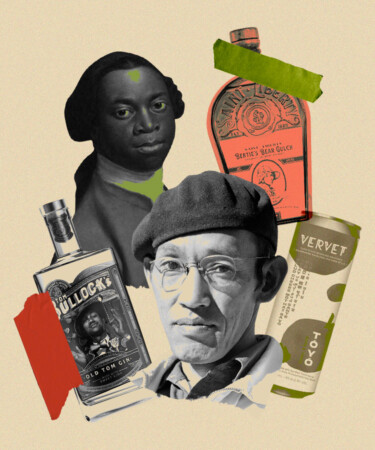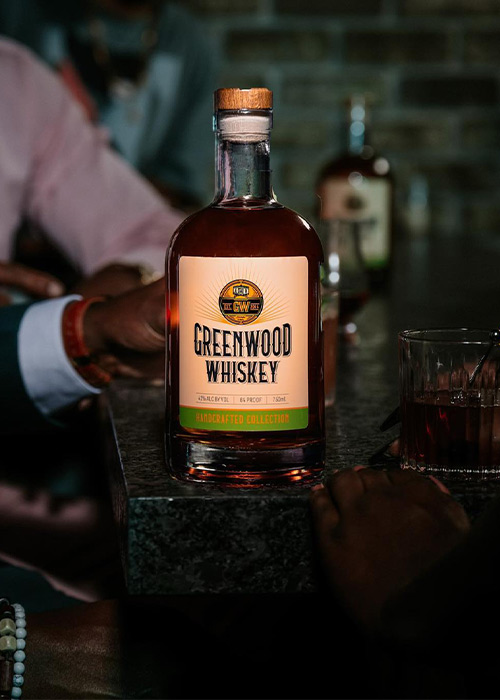The history of the spirits industry is notoriously one-sided. Key facts and figures are often overlooked. And the impact of marginalized people is either dramatically downplayed or erased completely. (For example, you’re probably familiar with the infamous Prohibition-era gangster Al Capone, but what about Stephanie St. Clair?)
There have been countless times that marginalized groups have been left out of history only for it to be found out later when someone takes the initiative to do their own research. Across the spirits industry, those stories are finally coming to light thanks in part to a few alcohol brands that are paying homage to the hidden figures of drinking’s past and beyond.
Here are five brands that are honoring marginalized people to make sure that their contributions to the world are never lost again.
Henderson Spirits Group: Bertie Brown and Tom Bullock
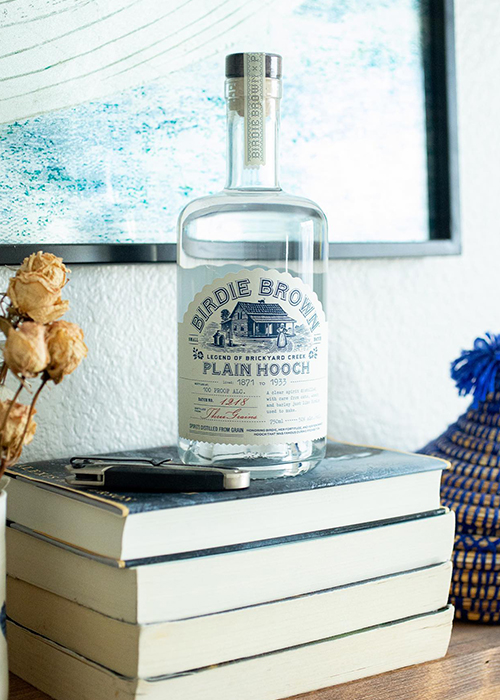
After noticing a lack of representation among spirits brands owners, former NBA player Alan Henderson launched the Henderson Spirits Group in 2019. He was tired of reading about different companies and just looking at the same old stories over and over. Henderson thought there needed to be some spirit brands out there that told the story of Black people since Black people were big consumers within the booze industry
“Everybody has got this white-hair Caucasian on the bottle telling the same story,” says Henderson. “I’m like, there’s got to be something else as we’re consumers. We’ve had something to do with everything in this country. … I just kind of set out to do some research and find some real African Americans in spirits history.”
During Henderson’s research, he found not one but two Black alcohol icons he thought the world should know about. The first is Bertie “Birdie” Brown, a Black bootlegger in Montana who was known for having the best moonshine in the area. Henderson found this story fascinating, so much so that he created Sip Birdie to tell her story. Sip Birdie’s first release, Birdie Brown’s Plain Hooch, is a small-batch unaged whiskey that pays homage not only to Bertie but other Black distillers from that era.
Henderson’s other brand, Tom Bullock’s Spirits, includes a burnt orange bourbon and an old tom gin that honor the famed Black bartender Tom Bullock who wrote “The Ideal Bartender” in 1917.
Saint Liberty Whiskey: Bertie Brown, Josephine Doody, Mary Curley
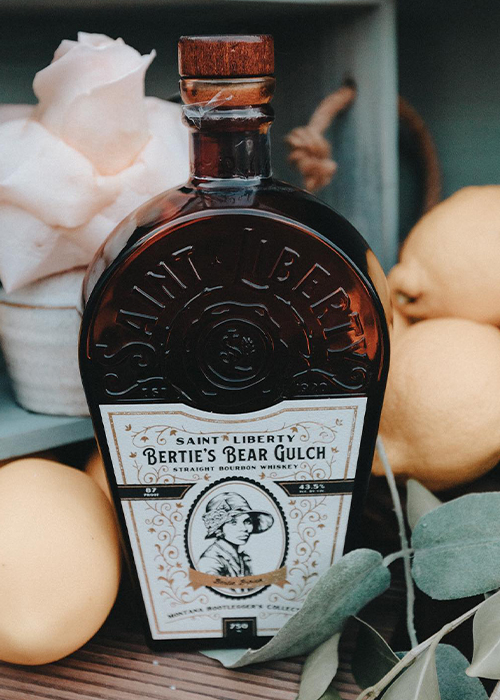
In 2020, Mark SoRelle, a 30-year spirits industry veteran, partnered with Harris & Simms (HANDS), a minority women-led spirits advisory company, to create Saint Liberty Whiskey, a line of whiskeys that highlights the untold stories of women bootleggers during Prohibition. The idea came to pass when SoRelle was doing research for other brands, and he kept running across incredible, inspiring stories of women bootleggers that have been left out of the narrative. Similar to Henderson, it was the story of Bertie Brown that convinced SoRelle to create a brand to honor these brave women. Saint Liberty’s first release was Bertie’s Bear Gulch Bourbon Whiskey to honor Brown. Saint Liberty features two other female bootleggers — Josephine Doody and Mary Curley — with a whiskey expression that highlights their individual stories. SoRelle feels these stories are important to be told and wanted to honor women who overcame the struggles of working in a male-dominated industry (much like his own wife, Pacifica). In fact, Saint Liberty pledges 5 percent of gross sales to women’s empowerment, entrepreneurial, and educational efforts.
Vervet: Tōyō Miyatake
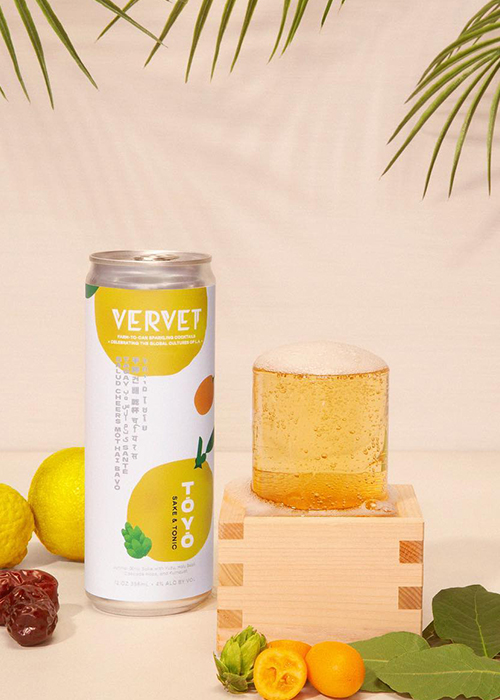
Vervet is an L.A.-based canned cocktail company founded in 2019 by Hope Ewing, Tuan Lee, and Alex Rosenblum. Its latest release is TŌYŌ, a low-ABV Sake Tonic that’s named after Japanese-American photographer Tōyō Miyatake. Like most Japanese Americans during World War II, Miyatake was imprisoned in an internment camp and seen as an enemy of the U.S. Miyatake was able to sneak a camera into the camp and took photos depicting the harsh realities of Japanese Americans during this period. When expanding the Vervet line, Lee felt strongly about paying tribute to Miyatake as a way to shine a light on Japanese American culture in the brand’s local L.A. community. “He’s a hero here in L.A., in California, to the Asian American community, to people who were trying to bring justice to an event when outside groups who are in power are trying to fictionalize the narrative completely,” says Lee. “He brought reality to it so Tōyō Miyatake, cheers to him.”
Equiano Rum: Olaudah Equiano
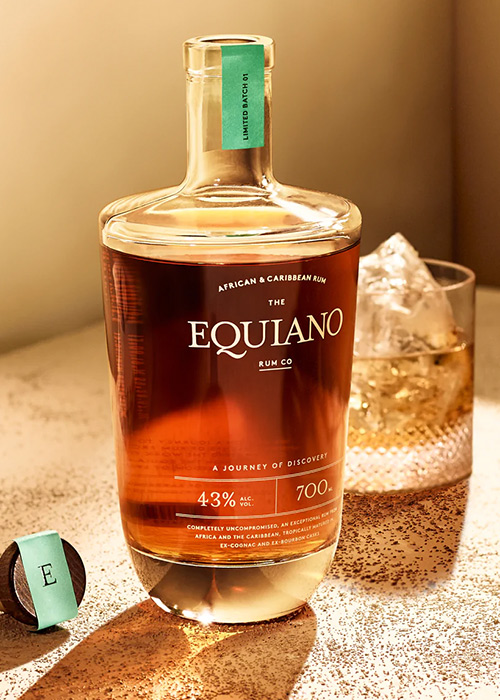
Co-founded by rum ambassador Ian Burrell and Richard Seale of Foursquare Distillery, along with Amanda Kakembo, Oli Bartlam, and Aaisha Dadral, Equiano Rum is named in honor of Nigerian-born abolitionist Olaudah Equiano. Kidnapped from his village in Nigeria and sold into slavery, Equiano was eventually able to secure his freedom with the money he made from selling rum on the side. Once he was free, he became an active abolitionist in the U.K. and began telling the horrors of slavery.
Equiano is believed to be the originator of the slave narrative because of his firsthand account of the slave trade that he recalls in his 1789 autobiography, “The Interesting Narrative of the Life of Olaudah Equiano; or, Gustavus Vassa, the African, Written by Himself.”
Burrell wanted to honor Equiano’s legacy and hopes to see more brands reflecting African history and culture in the near future. “Equiano was one of those people that you learn about and you imagine yourself back in the 18th century and what you have to put up with to become successful,” says Burrell. “It’s a really good reflection and also a lesson, especially for people that are Black and brown that want to fight against the system and be successful.”
Greenwood Whiskey: Black Wall Street
If you’ve never heard of Black Wall Street, you are not alone. The historic Greenwood District neighborhood in Tulsa, Okla., was home to over 600 Black-owned businesses in the 1920s. The town was completely wiped out by the racial violence and destruction of the Tulsa Race Massacre of 1921, and the thriving Black district — and its legacy — was lost in the ashes.
Founded by Kweilin Gordon, James Roach, Sheldon Johns-Harris, and Che Bailey, Greenwood Whiskey aims to celebrate the legacy of its namesake neighborhood as a prosperous Black business district in the Greenwood area. “That name and story and what it means and what it could mean moving forward inspire us,” says Roach, the brand’s COO. Roach believes that Black people need to start spending money within the Black community so that they can thrive again just as the Greenwood District did years ago. “The initiative of creating our own, being self-sufficient, keeping the dollar in our own community, [and] being a businessman — ownership, all,” he says.
